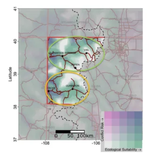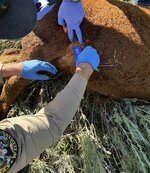go_deep
WKR
- Joined
- Jan 7, 2021
- Messages
- 1,974
Here's the plan for more.


Colorado wildlife officials confirm planned location for next wolf release
Colorado Parks and Wildlife is planning to double down on where it releases its next wolves.
www.coloradoan.com


